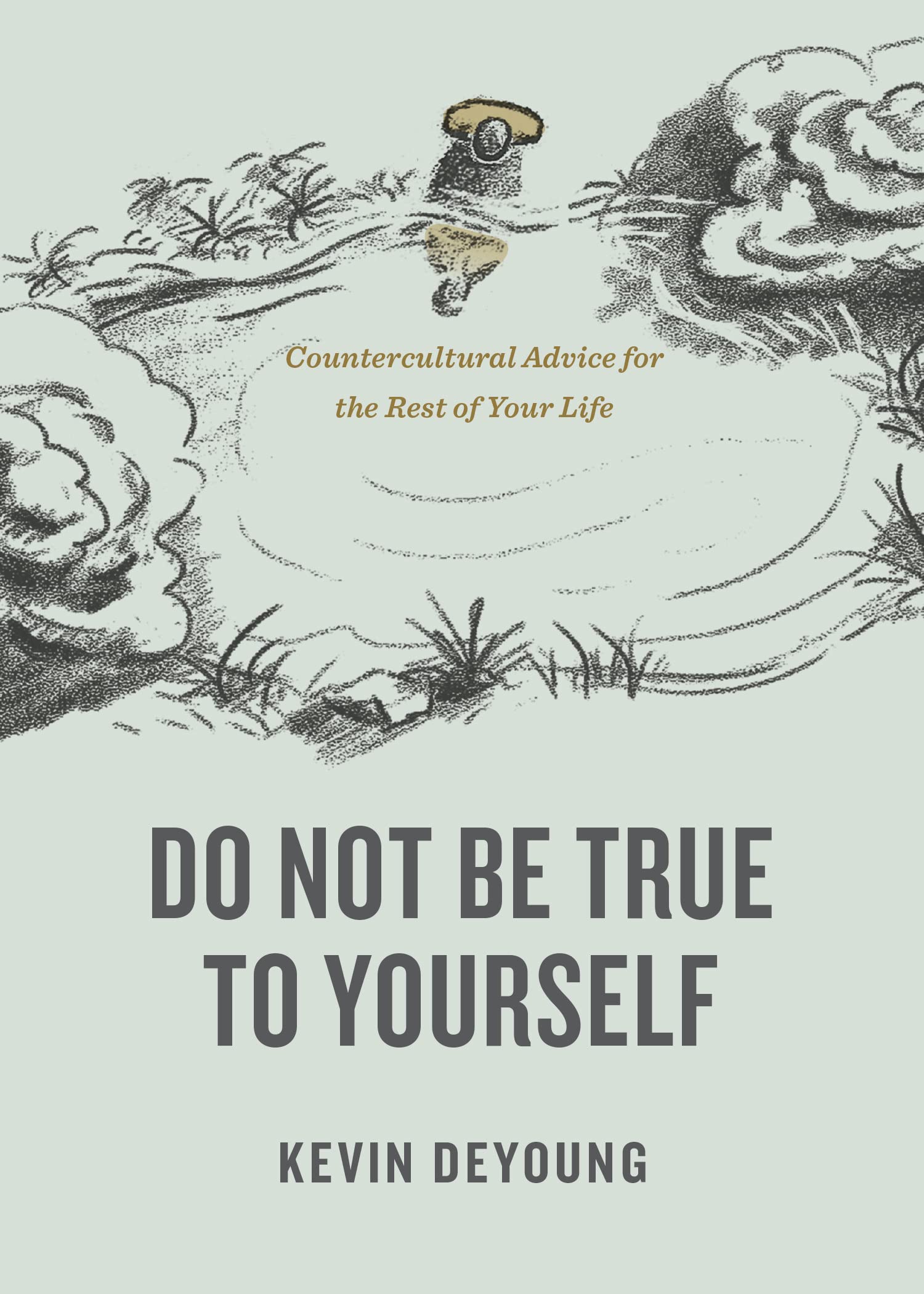One of Kevin DeYoung’s most recent books, Do Not Be True to Yourself, is a small one. Despite consisting of only 80 pages, a quarter of those being an appendix, DeYoung packs plenty of powerfully practical theology into it. Made up of five short chapters, the central argument of Do Not Be True to Yourself is contained in its title and subtitle. For, throughout, DeYoung deliberately takes an opposing stance, over against our cultural moment, where young people are told that the goal life is for them to discover and to be true to themselves.
Reading Both the Word and the World
DeYoung demonstrates that the decisions we make come out of how we view life; they are the result of our worldview. But there’s a problem. Very few of us have adequately examined the ideas, views, and beliefs that we’ve absorbed from those around us. So DeYoung summarises the zeitgeist of our day: the world tells us that our identity is found in what we desire; to deny the fulfilment of what you desire is to deny your truest identity. In varying degrees, all of us believe and act out of that worldview.
The world tells us that our identity is found in what we desire
One of DeYoung’s purposes, then, is to push back against this idea. He does so by practicing what the late John Stott called “double listening.” Basically, this refers to working hard at understanding both your audience and Bible very well; listening to both in order to understand and communicate better. Do Not Be True to Yourself provides an excellent model of this, as DeYoung seeks to address the ‘teaching’ of our world by first carefully examining it. This book, therefore, doesn’t only contain clear-eyed truth-telling, but also hard-fought understanding of culture. Joined to profound pastoral insights, DeYoung is effectively applies God’s counsel in the Bible to the lives of young people.
If the remainder of this review convinces you this book is worth buying, then I hope that you’ll buy extra copies and gift them to young people you know who’re leaving home for university or work. DeYoung anticipates the persuasive ideologies pulsing through our age and profoundly addresses them from scripture.
Everyone Must Navigate Culture
Even though DeYoung is writing primarily for his own, western audience, Do Not Be True to Yourself speaks into the situation that many of our own young people face in Africa.
Regardless of worldview, there are only two paths in life.
Here the tension is between the traditional African outlooks of parents and communities, where the expectation is that a child will unquestioningly follow the counsel of elders regarding what is the best life. Simultaneously, our young people are exposed to more western lifestyles and culture. There they see young people seemingly living carefree lives, devoid of societal straitjackets. Understandably, this is attractive. So the benefit of DeYoung’s book for young Africans is that he doesn’t completely endorse either; not more traditional worldviews that tend to deify community, nor the postmodern worldviews that typically overemphasise the individual and autonomy. In fact, DeYoung argues, a thoroughly biblical worldview challenges both.

Do Not Be True to Yourself: Countercultural Advice for the Rest of Your Life
Kevin DeYoung
Do Not Be True to Yourself: Countercultural Advice for the Rest of Your Life
Kevin DeYoung
Most speeches addressed to high school and college students follow a similar theme: march to the beat of your own drum. This may sound encouraging on the surface, but Scripture exhorts believers to submit their lives to the will of God, not their own desires. Christian students need gospel-centered truth to guide them on their journey toward independence.
In this collection of inspiring sermons and graduation speeches, Kevin DeYoung delivers a motivational, biblical call to young people: serve God faithfully―and if necessary, counterculturally―in the next season of your life. Do Not Be True to Yourself includes practical advice for cultivating a Christ-centered worldview in every area of adult life, including relationships, work, church participation, and spiritual growth, making it a transformational resource for mentoring students.
The above is powerfully on display in the fourth chapter of Do Not Be True to Yourself. DeYoung says that regardless of worldview, there are only two paths in life. We read this in Psalm 1, which says we are either moving in direction that brings us closer to God or away from him. There are no neutral positions. The aim of the Christian life, then, is “a quiet growth in the godly man or woman. You don’t have to be fancy or successful. If you have healthy roots, in time, the Lord will make you blossom. The Lord will give you fruit. He will give you life. And in season, people will see it” (p38).
The Gospel for All of Life
A major strength of Do Not Be True to Yourself is how unashamedly Christian it is. By this, I mean, DeYoung closes each chapter with gospel application, directed at the heart of his reader. So this isn’t a book merely aimed at offering more information, though it does that. Rather, DeYoung writes so that people can take practical steps to growing in their Christian faith.
DeYoung writes so that people can take practical steps to growing in their Christian faith.
One simple example of this is his insistence that young people decide to go to church immediately after leaving home. He explains why this is so important, writing, “the most powerful influences in your life are often the things you don’t even think about, the things you do out of habit, the things you do because you always do them—whether someone makes you do them or not” (p25). This, like the rest of this work, is an encouragement for anyone who reads it to take practical steps in following after Christ.
An Appeal to Read Good Books
The book ends with an appendix: ‘Twelve Old(ish) Books to Read When You Are Young.’ DeYoung includes this because he understands the tremendous value of reading good books in forming mature Christians. In it he lists books from a wide variety of authors that helped him on in his Christian journey. In some ways the appendix addresses those with wide variety of Christian books available, assisting them in knowing where to start. The focus is not so much on old books, but rather on books that have earned their place on the list of evergreen Christian classics. I plan on reading some of them myself.
One Minor Criticism
What didn’t I like about this book? It’s the fact that there isn’t a unifying theme, running through the book. The best books take you on a journey of discovery, as each chapter builds on the last. Thus by the end you understand that work as a united whole. But Do Not Be True to Yourself is more of a collection of essays. And it could have been even better if DeYoung had rewritten some the gathered materials in order to create a more cohesive volume. However, that doesn’t detract too much from the usefulness of this book.
Don’t Be True to Yourself
I’ll give last word to G. K. Chesterton, who DeYoung quotes. Writing about the foolishness of much of modern thought, turning us inward, Chesterton writes, “That Jones shall worship the god within him turns out ultimately to mean that Jones shall worship Jones. Let Jones worship the sun or moon, anything rather than the Inner Light; let Jones worship cats or crocodiles, if he can find any in his street, but not the god within. Christianity came into the world firstly in order to assert with violence that a man had not only to look inwards, but to look outwards, to behold with astonishment and enthusiasm a divine company and a divine captain” (p5).
Be true to the God who made you.
Dear reader, don’t be true to yourself. Rather be true to the God who made you to be part of a divine company (the church), walking behind his divine captain (Jesus Christ), along that well-worn path to eternal life.














